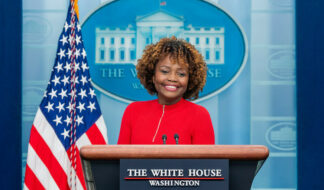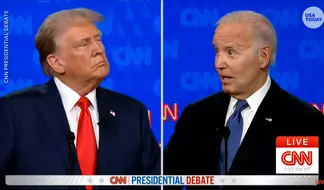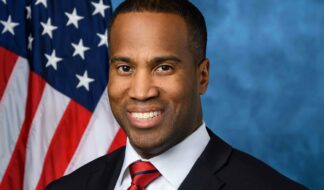By Dan Woog
The OutField
In 2004, Jennifer Harris was the top scorer on the Penn State University women's basketball team.
In 2005, she was dismissed from the squad. Harris broke the third of coach Rene Portland's three rules: "No drinking. No drugs. No lesbians."
Several minutes into "Training Rules" – Academy Award-nominated filmmaker Dee Mosbacher's searing, pull-no-punches documentary that covers Portland's 27-year history of homophobia – Harris stares into the camera.
She would like to tell her story, she says. But she cannot. Instead she reads her attorney's statement. Part of the settlement with Penn State was an agreement not to discuss the case.
That's the only equivocation in the hour-long film.
Using plenty of archival footage, plus interviews with female basketball players and sports experts, "Training Rules" shines a light on an aspect of women's athletics that for many years was talked about only in whispers – if at all.
Harris came of age along with women's sports. She received her first recruiting letter in fifth grade, and by senior year in high school was one of the top 20 players in the country. Her mother and sister were Penn State graduates, so when Portland came calling, Harris was all ears.
Her ears burned a bit during the recruiting process – when Portland said, "At Virginia they date girls; at Penn State we date boys" – but playing for one of the nation's most legendary coaches was a dream.
Dreams, of course, are not reality. Lisa Faloon learned that lesson in the 1980s. At her first team meeting as a freshman, Faloon heard Portland's warning: If you are a lesbian – even if you talk with a lesbian – you will lose your scholarship. And you will never play basketball again.
Faloon was conflicted. She invented a "boyfriend" back home. Portland, she said, "created a tremendous amount of fear I would wish on no one."
In 1986, a Chicago newspaper reported allegations of Portland's policy, but Penn State officials took no action. Don Rung, former math professor and chair of the university's intercollegiate athletic group, called that reaction systematic of "the insulation of athletes from the norms of the university." If he said something similar to Portland in his calculus class, he notes, there would be an immediate investigation.
"USA Today" columnist Christine Brennan wonders rhetorically how quickly a coach who said "I will not recruit black, Jewish or Asian people" would be fired.
But Portland was allowed – even encouraged – to continue. Twice, her coaching colleagues named her Coach of the Year.
When the "Philadelphia Inquirer" re-examined the anti-gay issue in 1991, times had changed. The press now framed the issue not as "lesbians in sports," but as homophobia. Penn State reacted by hiring University of Massachusetts diversity expert Pat Griffin for a one-shot, mandatory coaches' workshop. Portland – who arrived near the end of the meeting – was defended by participants as a "victim."
Griffin – one of many articulate voices in Mosbacher's film – calls Penn State "the poster child (for anti-gay harassment by coaches)," and says, "It happens every day, all over the United States." She adds that the impact of such actions extends beyond lesbian athletes. Straight athletes receive the message that lesbians should not be tolerated – and female athletes and coaches feel pressured to act "ultra-feminine," no matter how they feel.
Courtney Wicks, who starred at Penn State in 1996-97, is another victim of Portland's policies. When the coach told Wicks' parents that she ran a "lesbian-free program," the message was this, Wicks says: You can feel safe sending your daughter here. And you can feel safe knowing she is not a lesbian.
But Portland's policies had its limits. Brennan says there was a reason the coach never won a national championship: "Fear limits your fullest potential." During the last few minutes of a crucial game, the Lady Lions lacked the most important element a team must-have: trust.
(Another player asked, only half-jokingly, "Does she really think she'll win a national title without a lesbian?")
Harris – forced off the team – found the courage to confront Portland. Griffin calls Harris' lawsuit against Penn State "David versus Goliath." A six-month internal investigation found that Portland created a "hostile, intimidating and offensive environment." She was fined $10,000 – a meager sum, given her lofty income – and ordered to undergo diversity training. The school did not offer to reinstate Harris, who had transferred to James Madison University. In 2007, the lawsuit was settled out of court.
But shortly thereafter, Portland resigned. Mosbacher's epilog says that Portland refused to be interviewed for the film.
It notes that, after Harris, similar cases of anti-gay discrimination have resulted in millions of dollars of damages. And, at her next Penn State training, Pat Griffin received a standing ovation.









